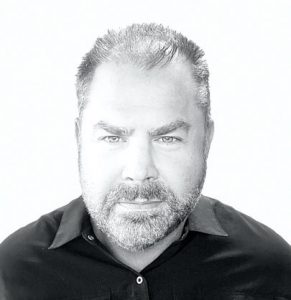Get a Free PDF copy
You can get a full PDF copy of our content by filling up the following online form. It’s spam-free.
Part One of a DHC Group Project
It’s Already an Omnichannel World from the Customer POV. Getting it Right as a Brand Requires a Mix of Data, Tech, and The Most Important Skill … a Culture of Integration and Sharing


Mark Bard
DCH Group
The Omnichannel Marketing (and Customer) Experience Most marketers and industry experts seem to coalesce around a shared description of omnichannel marketing – a seamless experience for customers across all channels with a consistent brand experience. However, pulling that off requires a teamwork mentality across the brand and the organization. Successful omnichannel requires taking a customer-centric view of the customer in a world where many pharmaceutical companies (and even brands) are still organized and mobilized by tactics (or audience) – and not the customer.
Something else that often gets lost in the omnichannel marketing conversation and debate about omnichannel success is the concept of simplicity – from the customer point of view. The most complex omnichannel marketing system and approach misses the mark if it ultimately confuses (or loses) the customer. It’s not about the number of channels, it’s really about the seamless and simplified nature of how easy a customer can move through those channels over time in a fluid fashion. There should be no perceived gap between the channels – it just works. In the end, it’s about making engagement and the overall experience easier for the customer.
Furthermore, pharmaceutical marketers, and their partners, must not only understand and meet the needs of their customers in the market today – they must accurately anticipate their needs in advance in this new world of modern marketing and customer experience. The continued explosion and integration of available first party data along with third party data sources is allowing innovative brands to not only react in real-time to customers but also predict what channel, content, and experience the customer wants (or needs) in the future.




The Omnichannel Marketing (and Customer) Experience Most marketers and industry experts seem to coalesce around a shared description of omnichannel marketing – a seamless experience for customers across all channels with a consistent brand experience. However, pulling that off requires a teamwork mentality across the brand and the organization. Successful omnichannel requires taking a customer-centric view of the customer in a world where many pharmaceutical companies (and even brands) are still organized and mobilized by tactics (or audience) – and not the customer.
Something else that often gets lost in the omnichannel marketing conversation and debate about omnichannel success is the concept of simplicity – from the customer point of view. The most complex omnichannel marketing system and approach misses the mark if it ultimately confuses (or loses) the customer. It’s not about the number of channels, it’s really about the seamless and simplified nature of how easy a customer can move through those channels over time in a fluid fashion. There should be no perceived gap between the channels – it just works. In the end, it’s about making engagement and the overall experience easier for the customer.
Furthermore, pharmaceutical marketers, and their partners, must not only understand and meet the needs of their customers in the market today – they must accurately anticipate their needs in advance in this new world of modern marketing and customer experience. The continued explosion and integration of available first party data along with third party data sources is allowing innovative brands to not only react in real-time to customers but also predict what channel, content, and experience the customer wants (or needs) in the future.
We would like to thank the following experts and thought leaders below for contributing their time and insights to this industry brief. What follows is a summary and highlights of the collective conversations with these experts.

Irene Coyne
EVP, Group Client Director
CMI Media Group

Joyce Ercolino
Director
Harmony Biosciences

Jose Ferreira
EVP, Product Strategy & Innovation
CMI Media Group

Justin Freid
Chief Media & Innovation
CMI Media Group

David Salmon
Global Head Innovation
AstraZeneca

Steven Xie
Director
Biohaven
Based on interviews and roundtable discussions we conducted, it is clear that if you look across our industry, each company, each person is defining ‘omnichannel’ a little bit differently. It is often described as the entire user experience an individual has with a brand. That can go from the upfront work and data analysis and audience segmentation through person-to-person contact, whether that’s a sales rep or a patient working with a clinical advisor, all the way through to how they engage with media and content. But there’s also some skepticism as to whether real depth exists behind the catch-all.



As it often the case, it’s helpful to define something against other known and accepted terms. In this case, many of the experts we spoke with wanted to ensure a distinction between multi channel and omnichannel. Their insights are important in driving us towards a more widely agreed on sense of what omnichannel is – and how it can become a meaningful part of our industry’s work, especially with regards to improving the customer’s experience.




With the need for well-executed omnichannel as a key catalyst for improving customer experience established, the experts weighed in on its value and integration. One key factor they all identified – the value needs to resonate for both the manufacturer and the customer. The recommendation is to not just set a blanket goal to “integrate omnichannel” but rather first identify the markets and customers where it adds value.



It’s time for marketers to embrace the complexity and sophistication of omnichannel as the new age of marketing. Omnichannel—the orchestration of touchpoints working in harmony with one another—has replaced the old multichannel approach to marketing, to create the most relevant, impactful, personalized and timely delivery of messaging to customers. It involves innovation, technology, and speed along with alignment and commitment from internal teams. With an omnichannel approach, brands can move their customers through the journey from engagement to action.
Omnichannel success is ultimately judged from the customer point of view. As we continue to explore the additional facets of omnichannel in future publications we will also explore the importance of culture and how companies can invest and motivate teams to share insights, integrate data, and share the learning that ultimate success with omnichannel from the customer point of view … requires integration and shared insights across and within the organization driving that omnichannel strategy.
You can get a full PDF copy of our content by filling up the following online form. It’s spam-free.
